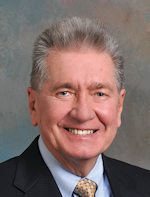Question: I'm a dental specialty practitioner attempting to sell my practice through a practice broker, but the broker has not been successful in locating a purchaser. My practice collects approximately $850,000 per year and my profit is roughly 55% of collections. What are my alternatives?
Prescott: Have a discussion with your broker and ask what they’ve done to assist you. Then agree on a strategy to get your practice sold, taking your retirement timeline into consideration. If the broker's response is not acceptable, have your attorney review your listing agreement to determine whether it can be terminated so you can engage another broker who works more in your specialty. The factors you should discuss with your broker include the location of your practice, the number of available candidates, and the profitability of your practice in light of the broker's appraisal.
Your continued work assumes that you want to continue and are healthy enough to work. If you can afford to retire, you can elect to work one or two more years longer. You indicated that your practice collects roughly $850,000 per year and your earnings are approximately $467,500 per year, or 55% of collections. By working two more years, you earn about $935,000, less if you take more time off. If your practice sells for 85% of one year's collections, $722,500, you would not have lost anything except some time. Table 1 is an analysis of this example.
As a last resort, close the doors and send patients to another specialist who will continue their treatment in progress. Or simply complete the treatment in progress yourself, which should not take too long, and refer new cases.
Read more by William Prescott
Setting a buy-out price without appraisal; collections levels and hiring an associate
Avoiding disputes and dispute resolution in partnerships
Question: I have entered a partnership arrangement under a three-entity method or professional limited liability company (PLLC) with our S‑corporations as members. I used a separate CPA through the negotiations because the practice was formed before August 10, 1993, when goodwill, I’m told, was not deductible. My CPA found a way to work through the issues in the allocations. In the future, should I work with the CPA firm for the founding owner, and the PLLC or the CPA for my S‑corporations and personal taxes? How does this usually work for partners in similar situations?
Prescott: The biggest issue is your relationship with your CPA. Cost is probably comparable. Your CPA has specific allocations for your S‑corporation to get you the deductions for the goodwill since the owner's practice was formed before August 10, 1993. Consider using your existing CPA because they know your practice entity and personal situation. But do interview both firms to determine with whom you’re most comfortable. If you do use the CPA for the founding/existing owner, your attorney and CPA should discuss any conflict-of-interest issues.
Because of the rise in three-entity transactions, the parties usually use two CPAs, although not always. The CPA for the founding/existing owner generally handles the accounting for the PLLC, of which you and your partner's S‑corporations are members. However, if you do retain your existing CPA, upon the departure of the founding/existing owner, your CPA would also handle the accounting for the PLLC, assuming you admit a new partner in the future.
In summary, determine which CPA you’re most comfortable working with, considering how well he or she knows your situation.
Question 3: I’m a specialty practitioner and I’ve located a quality candidate to purchase my practice in eight months when the candidate's residency is completed. I’ve also located another candidate who’s in the same specialty practice as me. Both candidates appear that they will do very well, and I feel comfortable with both. Which candidate is the better choice?
Prescott: While you believe the current resident is a quality candidate, he or she may not be able to obtain 100% financing to purchase your practice without working as an associate for at least one year. The candidate with an existing specialty practice should be able to obtain 100% financing immediately.
Both candidates will probably want you to remain working for some period of time. The resident may want your assistance and mentorship from both a clinical and management perspective. The existing practitioner might also want you to keep working for some time to maintain coverage until they find a suitable successor for you. In such case, your successor would require mentorship and management training.
Go with the candidate you like best, recognizing that the resident/candidate may not have 100% immediate financing available and could leave for another opportunity. Sale and purchase agreements can be prepared early with safeguards in place for you, such as mutual promissory notes in the sum of $50,000 or $100,000 if either of you back out, as well as breach of contract provisions.
Editor's note: This article appeared in the March 2023 print edition of Dental Economics magazine. Dentists in North America are eligible for a complimentary print subscription. Sign up here.








